CAPE INFERNOS PART 2
Crucial lessons for future preparedness from the Western Cape fire season
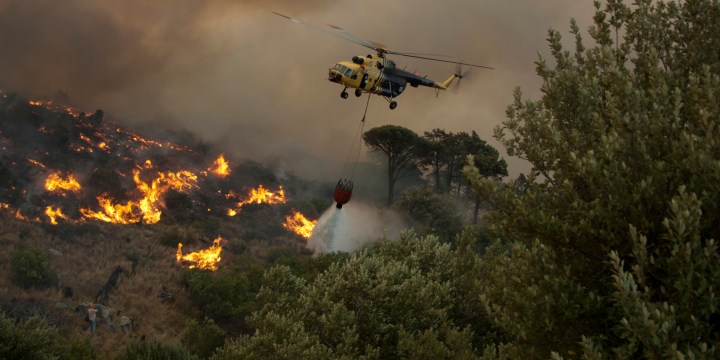
The Western Cape is witnessing one of its most intense fire seasons in years, pushing firefighting crews to the brink. But experts warn it is an unsettling preview of an unprecedented fire season to come.
There are vital lessons to be learnt from the Western Cape wildfires ahead of the next fire season which is expected to be unprecedented in scope and scale.
Three warm, dry and windy months have been enough to get the fire risk back high, despite the late heavy winter rainfall, and lead to a fire season that has never been so intense this early before.
Tessa Oliver, manager at Western Cape Umbrella Fire Protection Association, told Daily Maverick: “It is a lot worse than previous years. It’s not necessarily about the amount of ignitions that has increased, it’s the fact that the conditions when there is an ignition are just more extreme”.
“What we’ve had is a couple of winters of very good rain, and rain makes plants grow, then you get fine fuels — a lot of grassy, shrubby stuff which grow and die off in summer when it’s hot… Basically those fine fuels become a lot more after a very good winter season because they can grow more. If we had poor rainfall during the winter season there would be less fine fuels growing everywhere.
Read more in Daily Maverick: Taking stock — staggering scale of Western Cape wildfires as fire season continues to rage
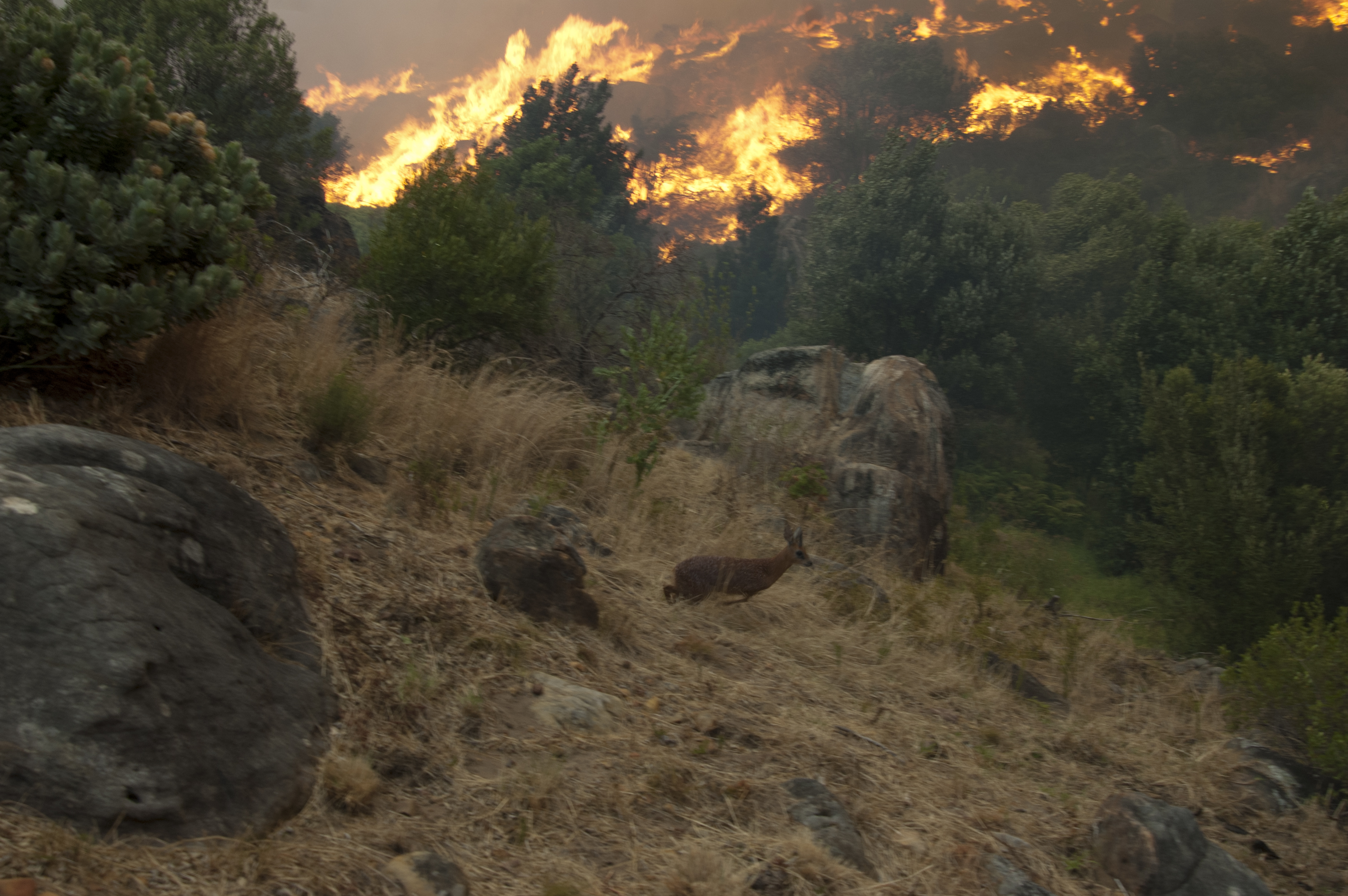
On 19 December 2023, the Castle Rock fire started on the mountain slopes near Simon’s Town. (Photo: Don Pinnock)
“All of that beautiful lush greenness in the undergrowth and on the side of the roads that looks so beautiful in winter, becomes a fire risk in summer,” she said.
South Africa’s fire seasons
Fire seasons across the country are mostly influenced by rainfall, with burning occurring in the dry season. The Western Cape is an anomaly — experiencing its fire season in summer, lasting from December through April.
In the eastern and northern parts of the country, the fire season typically lasts from June to October. In the southern cape, which receives all-year rainfall, there is no distinct fire season, with the potential for fires during dry spells at any time of the year, says PhD student in climatology from the Climate Systems Analysis Group at the University of Cape Town (UCT), Stefaan Conradie.
Last year saw a record fire season in the northern part of the country during winter, where provinces like the North West, which typically burns about 200,000 hectares, scorched about 1.2 million hectares with four fire-related deaths recorded.
The two largest and most destructive wildfires in the Western Cape occurred outside of the traditional fire season, in June 2017 in Knysna and October/November 2018 in George.
Read more in Daily Maverick: Western Cape braced for worst fire season in eight years
It’s hard to differentiate the Western Cape from other parts of the country, in particular the eastern and northern parts, as their weather systems are driven by very different processes. However, the entire country is affected by the global trend of increasing temperatures, which means that, on average, the fire season will get longer everywhere.
Director of the Alliance for Collaboration on Climate and Earth Systems Science and senior researcher at the Council for Scientific and Industrial Research, Dr Neville Sweijd explained that South Africa has largely different climate regimes, with eight to 11 different climate zones.
“We’ve got a summer rainfall region towards the northeast of the country. We have a winter rainfall season in the southwest of the country. That means that summer rain matters more in the north and winter rain matters more in the south,” he said.
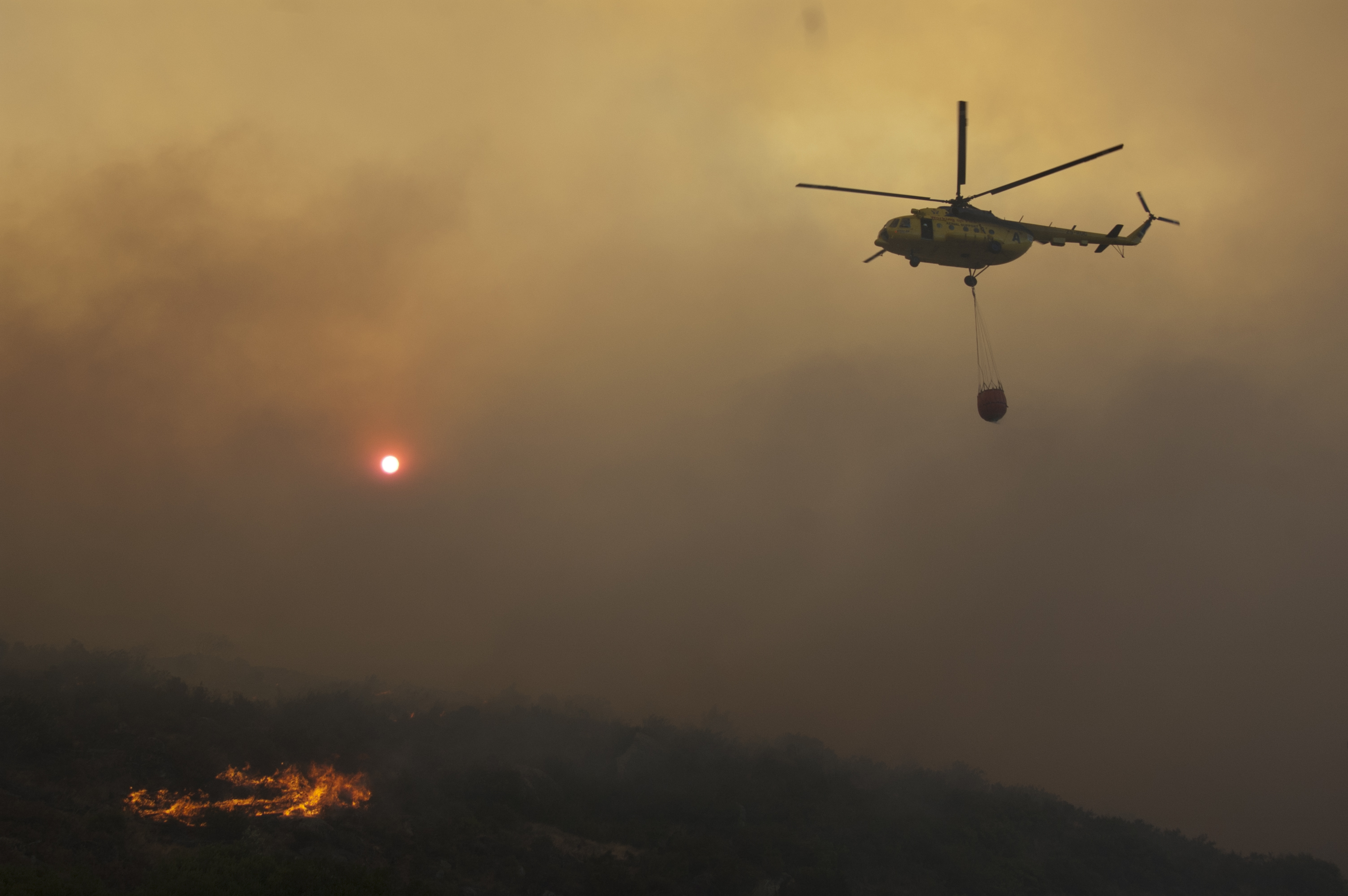
Strong winds, limited access and steep terrain presented challenges for the firefighting troops that attempted to suppress the blaze. (Photo: Don Pinnock)
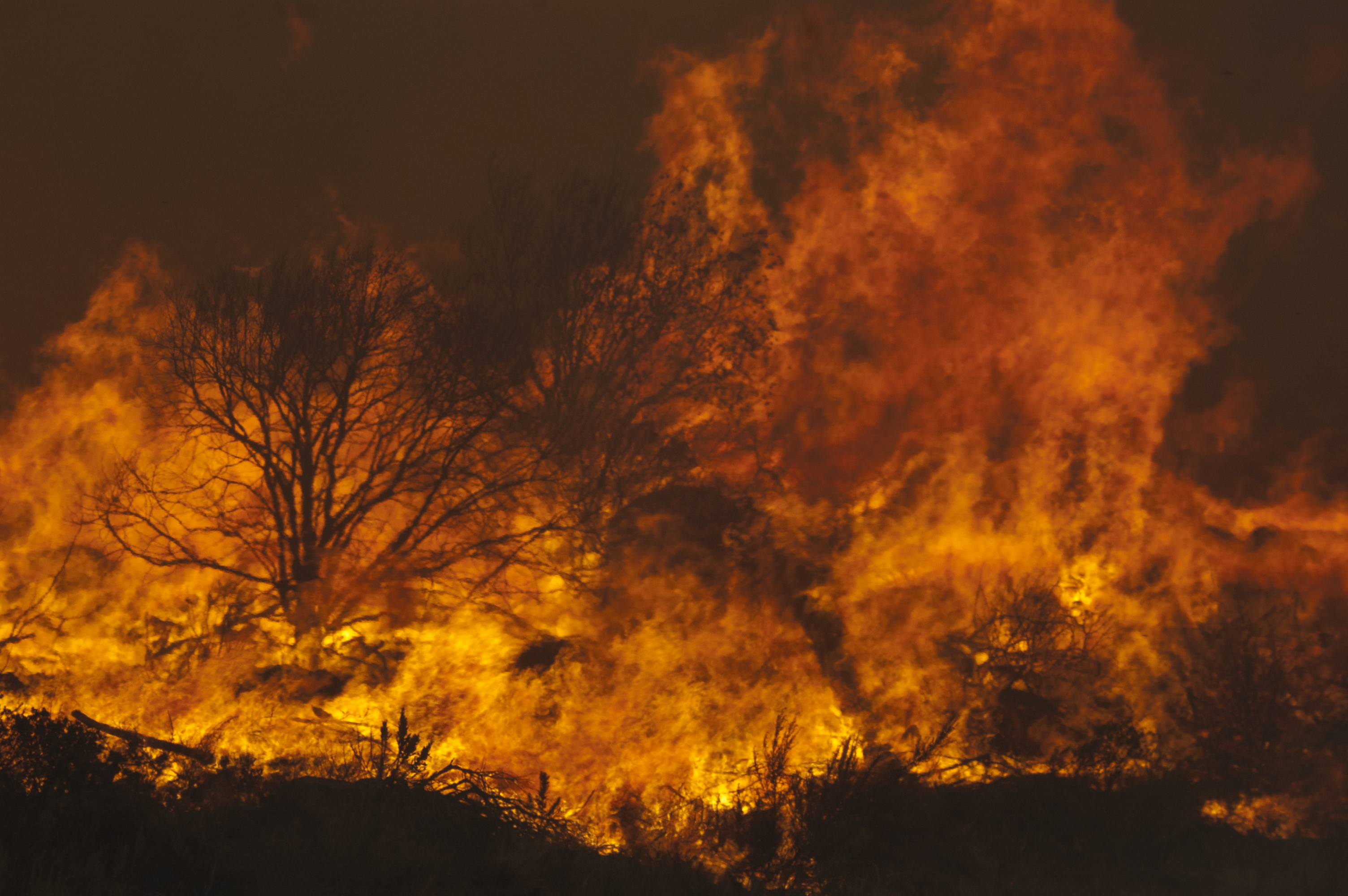
Over a hundred homes had to be evacuated as a result of the fire, which destroyed 3,545 hectares of land. (Photo: Don Pinnock)
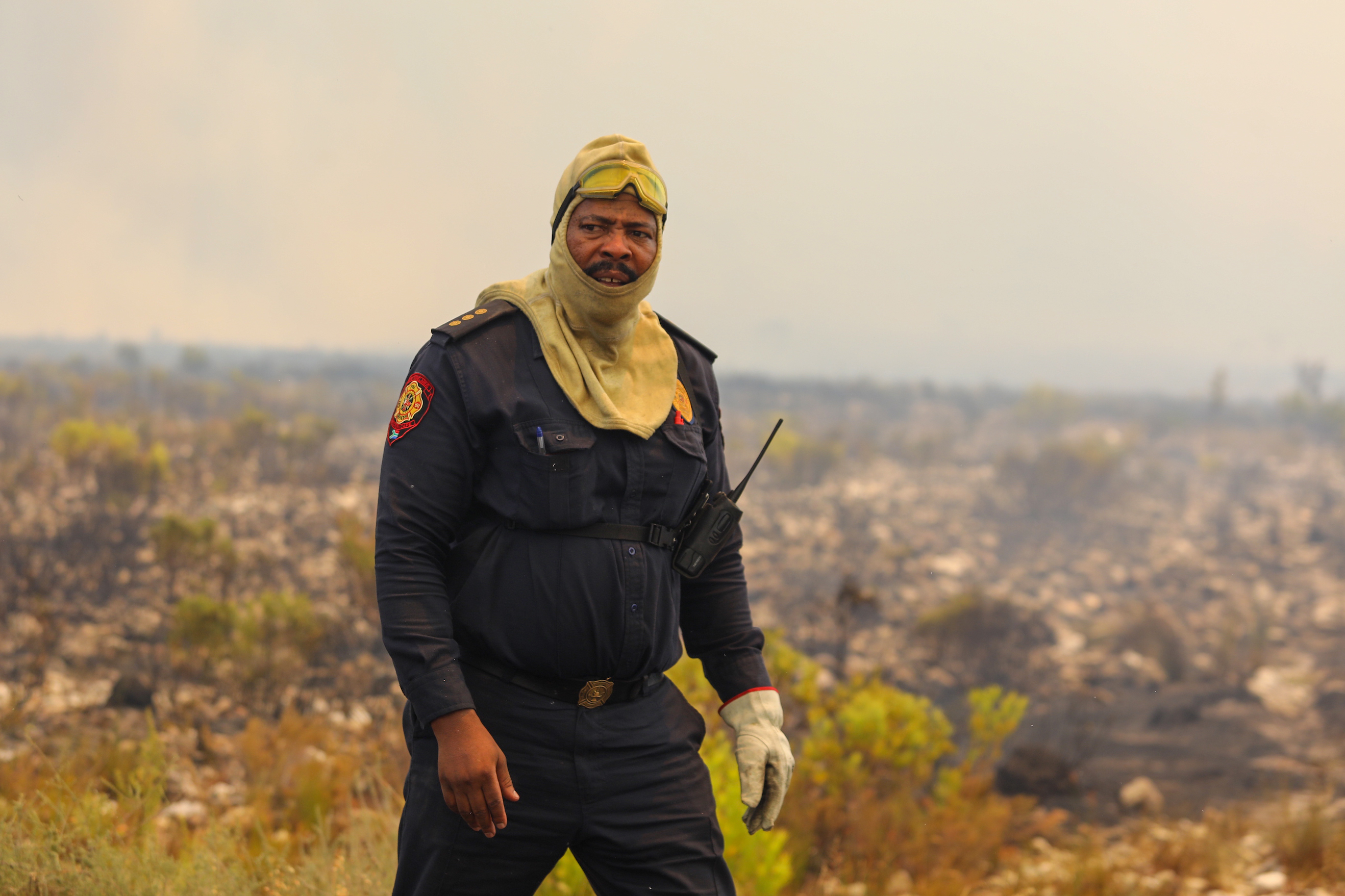
A fireman during the Kluitjieskraal fire, which began near Wolseley in the Western Cape, 28 January 2023. (Photo: Shelley Christians)
The link between El Niño and the conditions in southern Africa is complex and does not always follow a simple pattern. In general, El Niño brings drier weather to the summer rainfall region of southern Africa. This would be expected to result in a more intense fire season.
However, there have been many exceptions to this rule in which El Niño did not bring drier conditions. In the southern and western parts of the country, El Niño does not seem to have a predictable effect on rainfall.
Lessons from the Western Cape
Over the past few years the cooperation and collaboration between municipalities, the Western Cape government, and different firefighting agencies have, overall, led to more efficient response to wildfires that reduces the amount of damage wreaked on infrastructure and the environment.
Working on Fire (Wof) managing director Trevor Abrahams says the Provincial Disaster Management Centre (PDMC) in the Western Cape has a first-response strategy where they pay for the first hour of aerial resources — meaning someone doesn’t have to sit with a calculator wondering if they can pay for aerial resources or not.
“They can get there and throw as much water [on the fire] within the first hour. What that does is, 80% of our fires are controlled in the first hour… If you can get to fires quickly and early, you limit the actual costs you eventually spend on that fire,” he said.
As wildfires continue to rage in the Cape, experts warn that key lessons firefighting and management authorities in the rest of the country should heed is not to focus only on firefighting response, but to implement prevention and mitigation measures ahead of the fire seasons.
This means prescribed burns, clearing invasive aliens, and more emphasis on preparedness in regions as well as monitoring — satellite monitoring and terrestrial monitoring to pick up fire ignitions.
Spatial scientist at Nature Conservancy South Africa, Glenn Moncrieff said fires are a natural part of our landscape and vital to the healthy functioning of many of the country’s ecosystems, but “rather than ignore this reality and respond to every fire as if it were an unexpected tragedy, we should anticipate and prepare for it.”
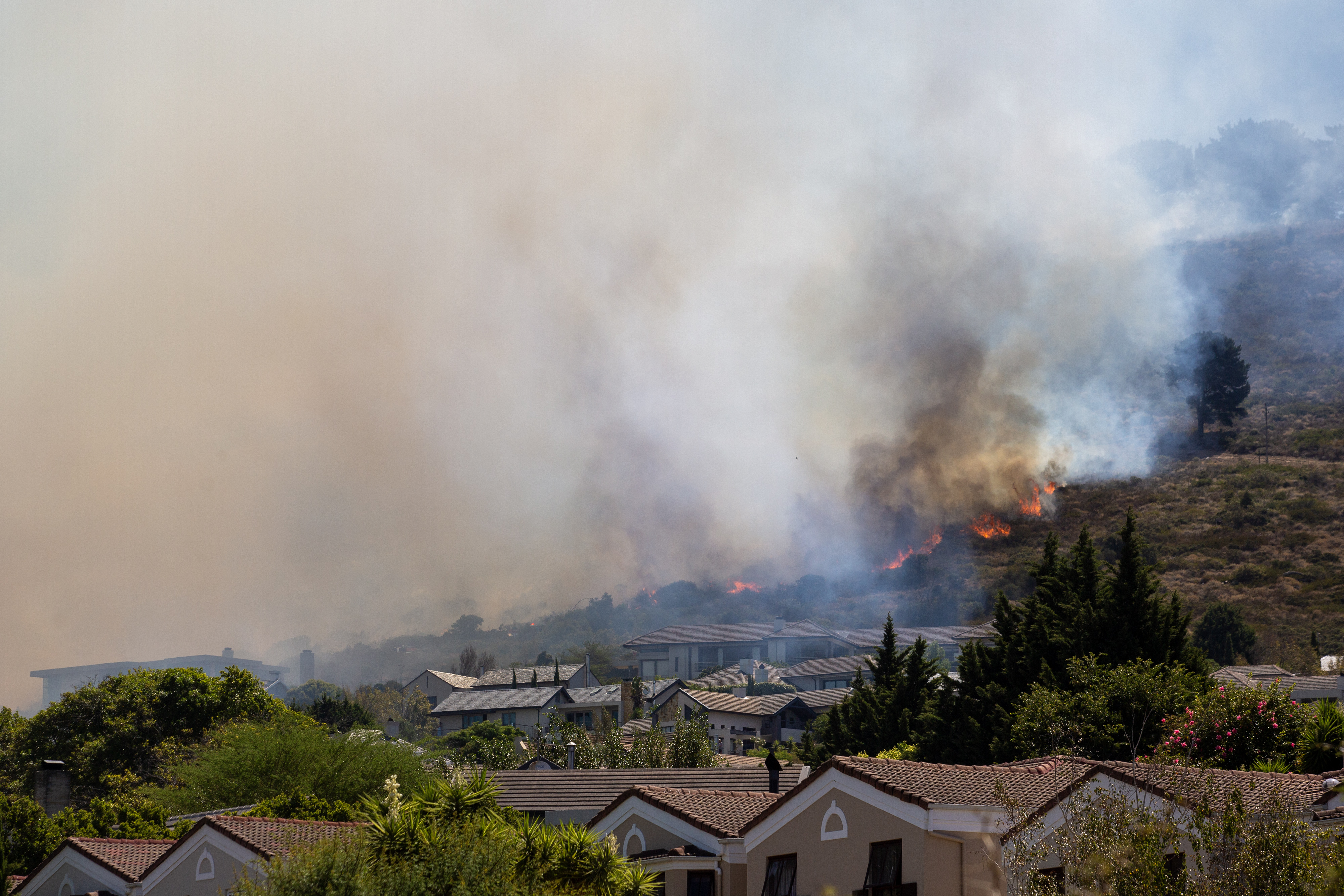
Aerial firefighters battle a fire on Tygerberg Hills, bordering the nature reserve in Cape Town, 25 January 2024. (Photo: Shelley Christians)
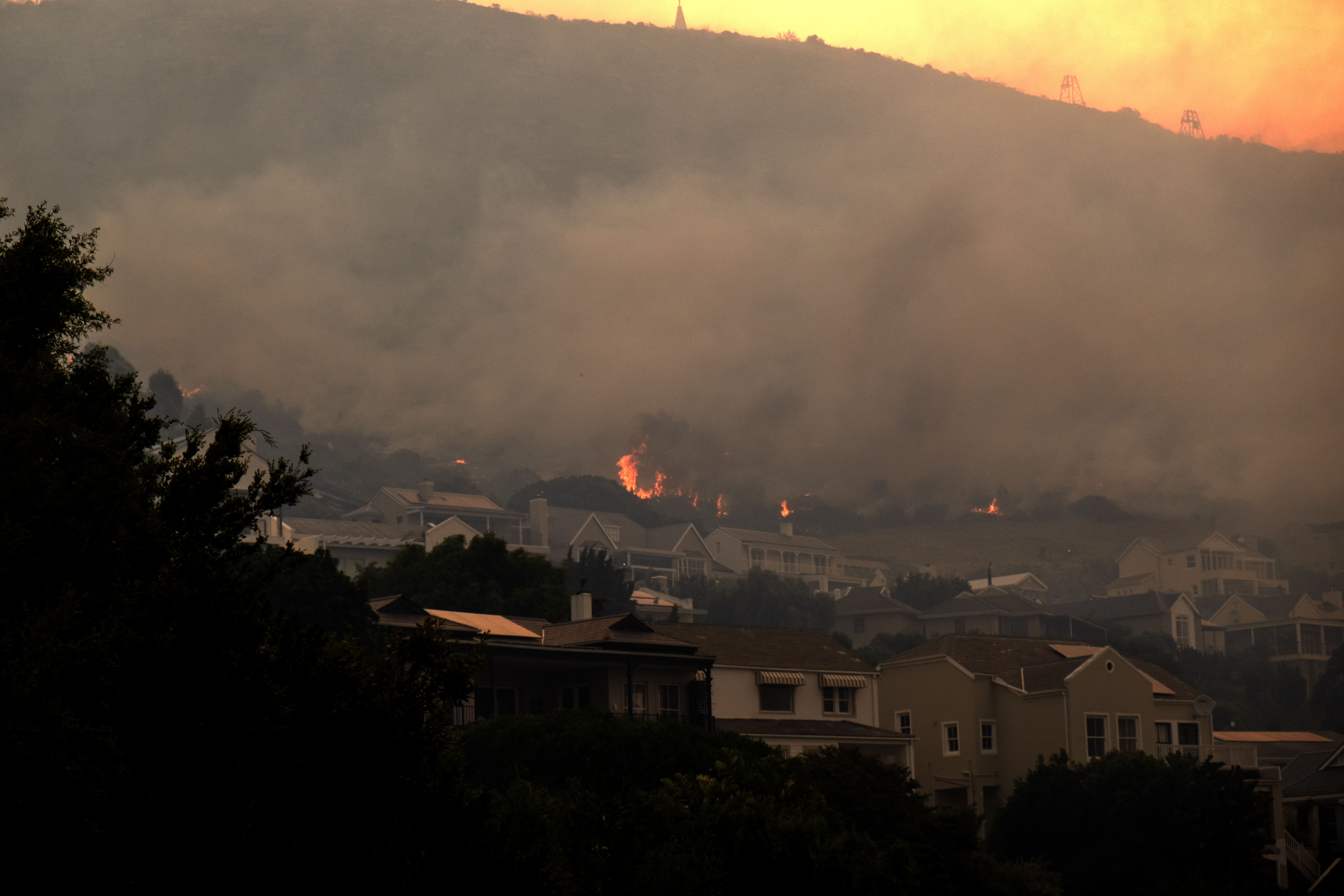
The fire which began near Castle Rock makes its way across the mountain, just above houses in Simon’s Town, 19 December 2023. (Photo: Kyra Wilkinson)
“This means ensuring that healthy natural fires are allowed to burn, invasive alien plants are cleared, intelligent planning of infrastructure, and taking collective action to slow and halt climate change,” he continued.
Conradie concurred, saying, this was the perspective supported by prominent wildfire researchers across much of the world. Conradie and Moncrieff emphasised that urban planning for the wildland-urban interface (WUI) is crucial, as are management strategies for abandoned or neglected rural land — particularly old plantations.
“People living and working in the WUI should be supported to ensure that buildings have a defensible space around them to mitigate fire risk,” said Conradie.
Experts say most fire ignitions are caused by people, either accidentally or on purpose, especially in case of wildfires.
UCT plant ecology and global change biology researcher, Jasper Slingsby said what was experienced in the Western Cape — and soon the rest of the country — is really a human problem, not an ecological problem.
“I think almost all properties that have been damaged in most cases in the Western Cape in probably the last 30 years have been associated with having alien vegetation along houses,” said Slingsby.
“Alien invasives are what really changed the game when it comes to these fires, and if we have these alien invasives in grass fires — as compared to fynbos fires — then they have more of a possibility of becoming out of hand and difficult to control, with untold loss of lives, [and] damage to structures that just don’t even compare to the fynbos fires,” he continued.
Abrahams warned that the Garden Route — with all its growth over the 2023 winter season — is a tinderbox. He said people need to be educated about safeguarding their homes when faced with the threat of wildfire.
“Those are programmes that need to be rolled out on a bigger scale,” he said.
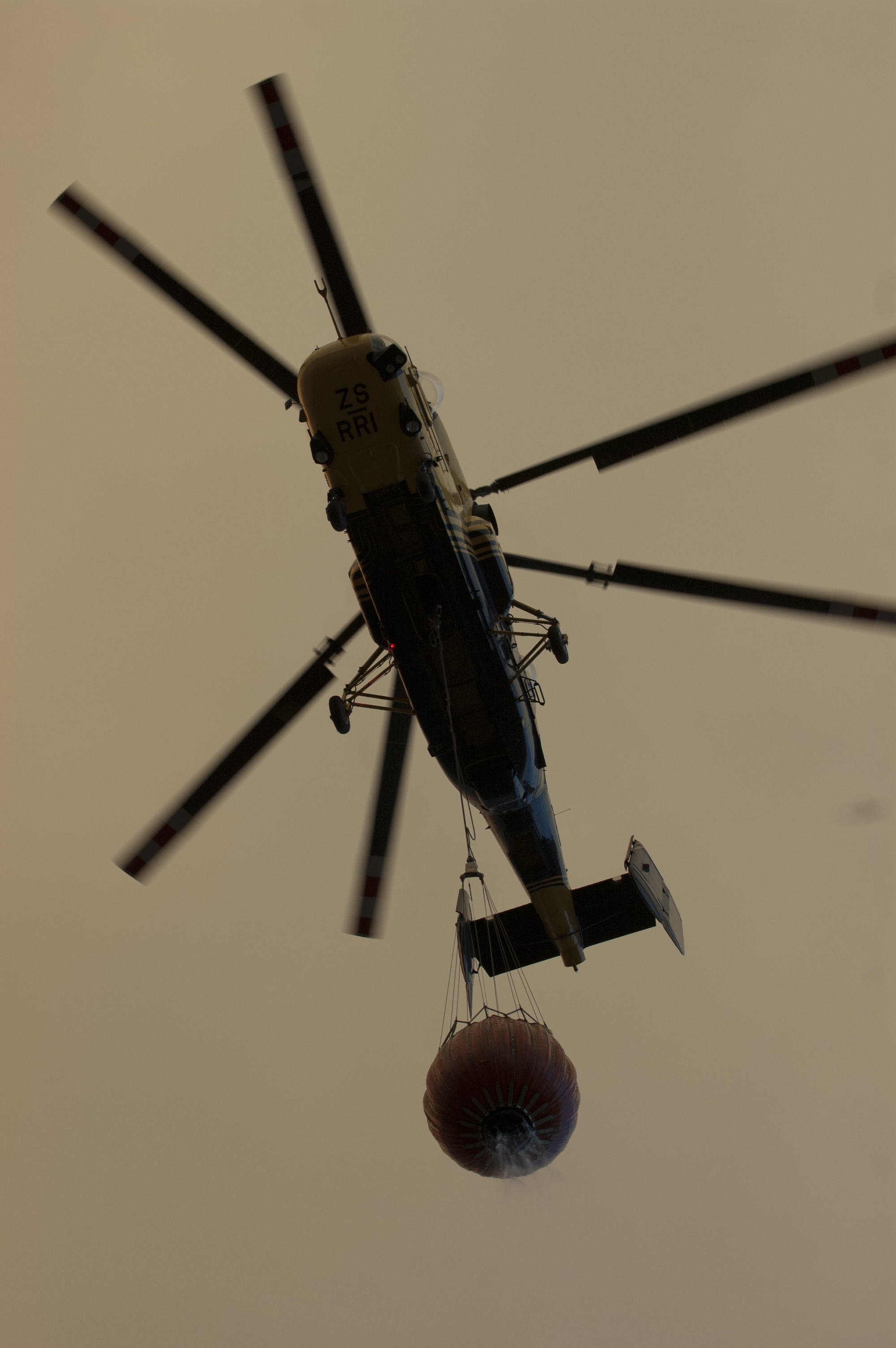
A helicopter battles the Castle Rock fire started on the mountain slopes near Simon’s Town. (Photo: Don Pinnock)
Communication and collaboration
But perhaps the most important lesson other provinces can learn from the Western Cape authorities’ response to wildfires, is their seamless level of cooperation and communication, says Abrahams.
“The Western Cape has got a lot of lessons for the rest of the country. The kind of coordination that they’ve managed to pull off between the [PDMC], the City of Cape Town, the WoF, the volunteers and the NCC, is a level of collaboration that is not perfect, but should be much more active elsewhere,” said Abrahams.
However, he was not confident that other provinces and municipalities have the same capability and resources to be able to carry this out.
“They haven’t developed the level of coordination that we have in the Western Cape… The very structure of firefighting doesn’t lend itself to effective collaboration,” he said.
But this should not stop entities in the rest of the country from implementing these measures and this level of collaboration to avoid uncontrollable wildfires. DM

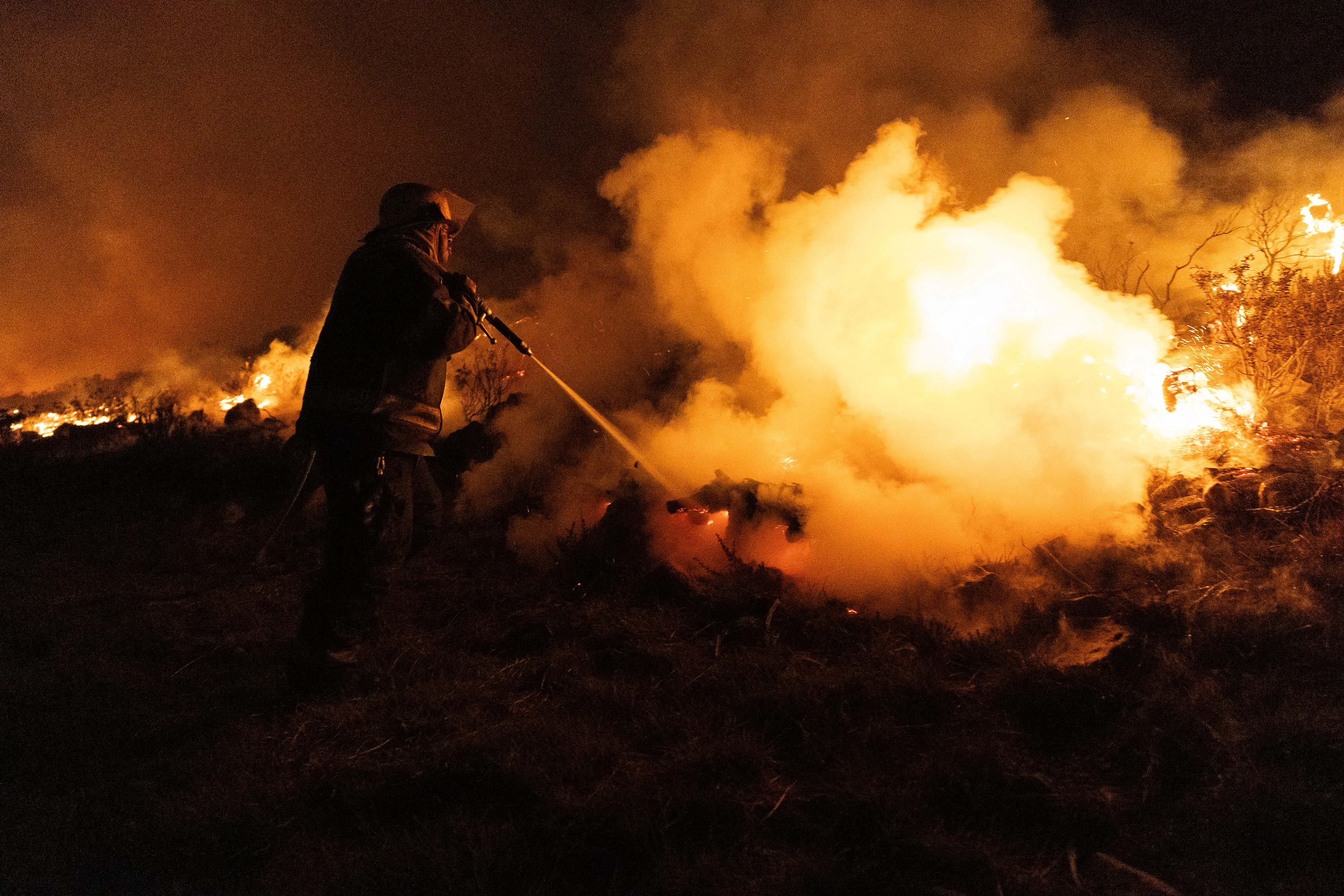
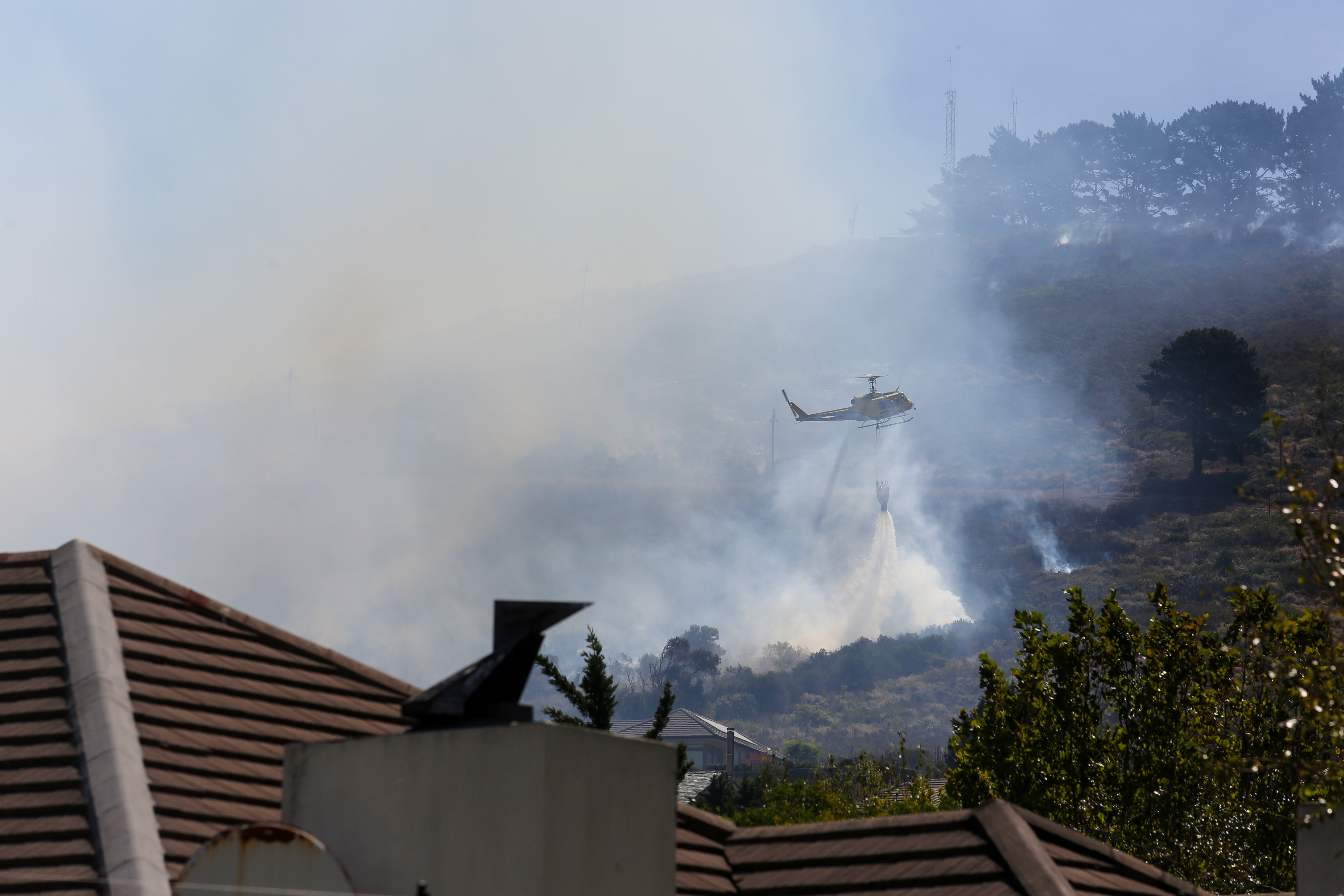


















 Become an Insider
Become an Insider
Maybe I missed it, but seems like both articles on the fires in the western cape omit to mention fires started by vagrants and arson.
Yes. Climate change and alien vegetation are the conditions which make fires easier to start ie by vagrants and as the Hermanus mayor said almost certainly by arsonists eg the pattern of fires starting such as even circles near Pringle and Betty’s bay .Soneof the reasos for the bad season in the Western Cape of fires,which even now thanks to a well organised and dedicated fire service are managed pretty well well, are clearly.political. Political conditions are clearly also very important ie a hotly contested election and panicking ANC desperate even to the point of sabotaging the Western Cape or at least neglecting national government responsibilities there. Perhaps the learned climatologists at UCT have all too soon forgotten their own devastating fire which if the wind had been blowing in a southerly and not a northerly direction would quite probably have taken out Groote Schuur Hospital. The official report on that fire said that a car stopped on Hospital bend ie not vagrants and people were seen climbing over the fence at a spot with many dead pine trees not removed after an attempt to make the area more fire safe by removing them And please who ever concocted this article , well said on one important aspect of fires but for heavens sake draw the dots on the other major WC fire issue